Sapa Fansipan Tour: The Ultimate Adventure in Vietnam’s Roof of Indochina
Tucked northwest of the nation, Sapa boasts one of the most breathtaking natural beauties in Southeast Asia: Fansipan, sometimes known as the “Roof of Indochina. A Sapa Fansipan tour is an excursion not to be missed for anyone looking for one combining natural beauty, cultural immersion, and personal challenge. Let MOTOGO Tours explore
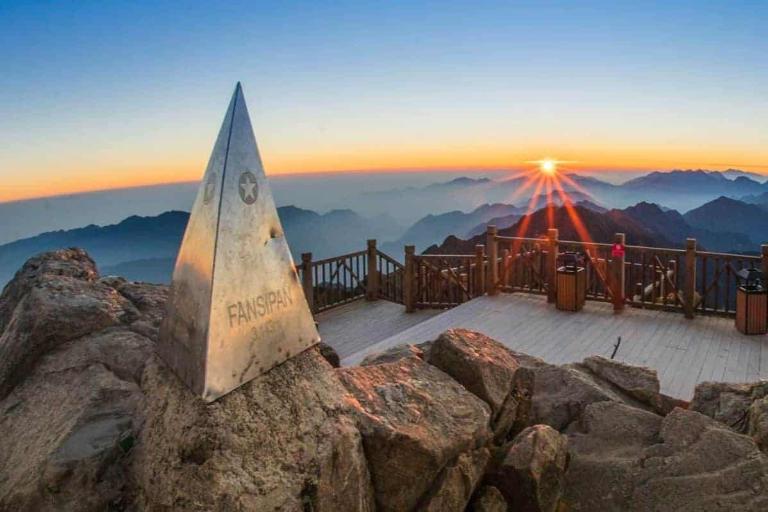
Introduction to Sapa Fansipan
The Allure of Fansipan Mountain
Rising shockingly 3,143 meters (10,312 feet) above sea level, Fansipan is the highest peak on the Indochina Peninsula overall and in Vietnam. Hikers, trailers, and visitors all have long been enthralled with its rugged, mist-covered hills. Fansipan presents a different view on the power of nature whether you’re staring at its snow-capped top in winter or seeing the clouds wash over the terraced rice fields underneath.
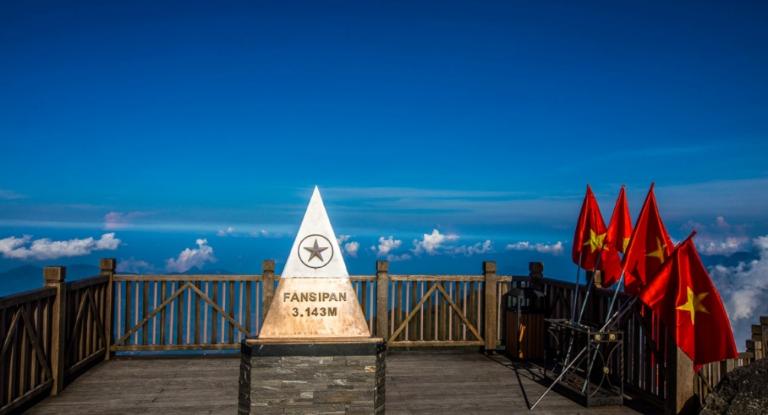
Why Sapa is a Must-Visit Destination
Sapa is much more than simply the mountain; it’s a portal to the stunning scenery and rich cultural legacy of Vietnam’s ethnic minority. Still living in traditional ways, the H’mong, Tay, and Red Dzao peoples call the nearby valleys, rivers, and towns home. A visit to Sapa will provide you an amazing view of Vietnam’s rural heart whether your interests are in nature, photography, or culture.
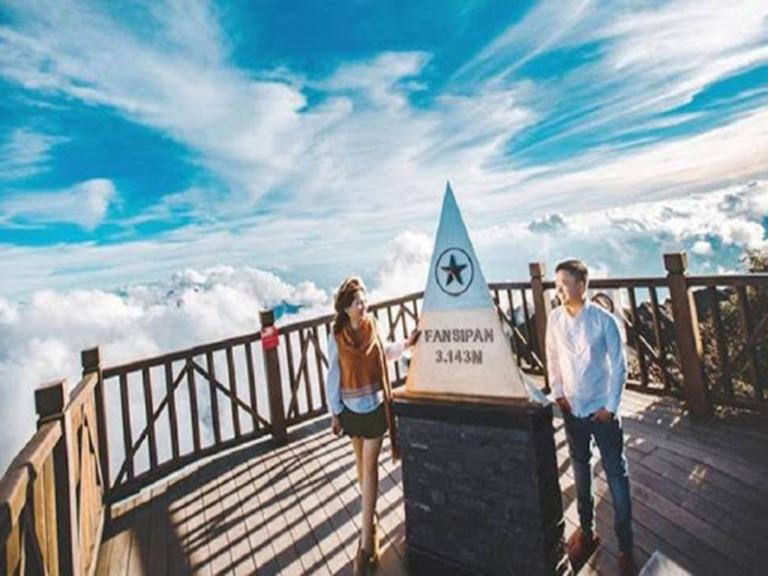
Planning Your Sapa Fansipan Tour
Best Time to Visit Sapa for Fansipan Tour
The time of year will greatly affect the Sapa weather, hence selecting the correct season for your Fansipan trip is essential. Trekkers would find the months between September and November great since the temperature is cool and dry and clear sky suitable for mountain views. But winter, from December to February, brings low temperatures, sporadic frost, and an opportunity to view snow atop Fansipan, which makes this popular season for a different, breathtaking experience.
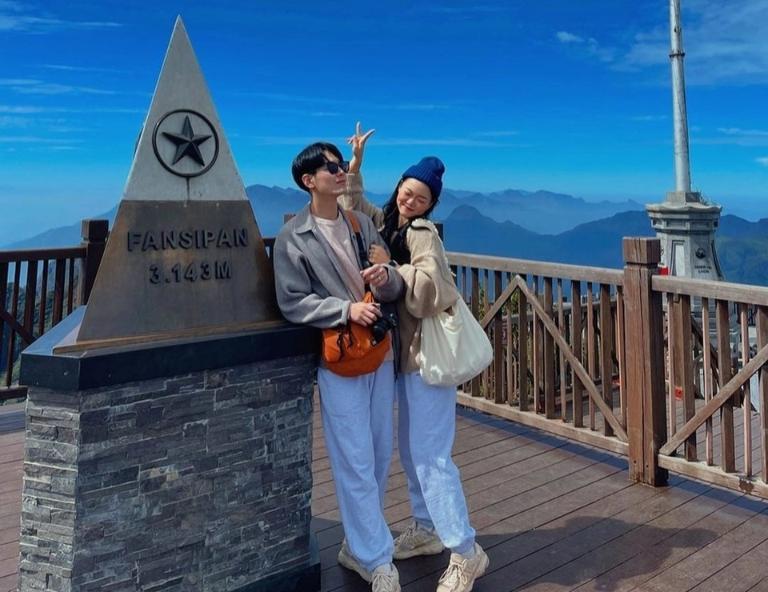
Choosing the Right Fansipan Tour for You
Sapa presents several travel choices to fit every kind of visitor. If you move more slowly, think about the cable car journey, which lets you appreciate the mountain’s splendor without having to walk. The walking path to the peak is a demanding yet fulfilling experience for people who enjoy adventure. There are also combo trips that let you experience of both worlds.
Popular Routes for Sapa Fansipan Tour
Cable Car Experience: A Scenic Journey to the Top
The cable car is your best choice if you want a hassle-free but beautiful approach to ascend Fansipan. Opening in 2016, the Fansipan cable car has the longest three-rope cable car line world record. About fifteen minutes of travel provide amazing panoramic views of the nearby mountains, rice terraces, and valleys. The mist could cover you as you climb, producing a dreamlike and wonderful experience.
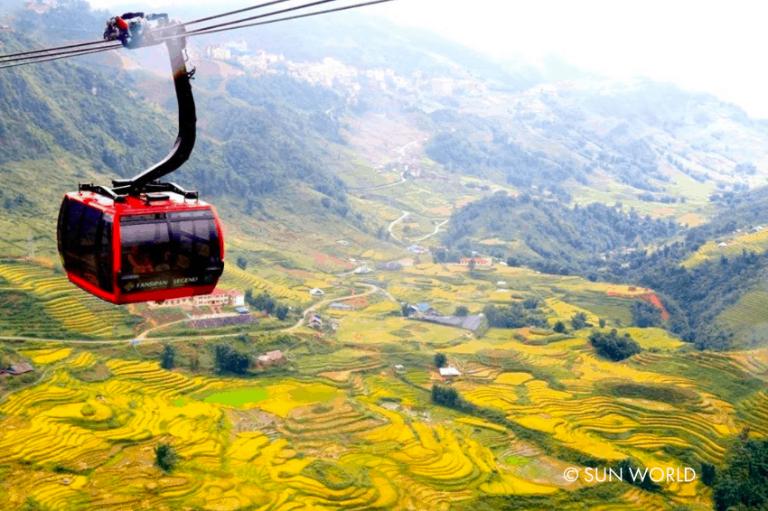
Trekking to Fansipan: For the True Adventurer
Trekking to the top of Fansipan is the ultimate aim for individuals who enjoy difficulty and the sensation of achievement. Depending on the path used, the walk often lasts two to three days; overnight accommodations in mountain huts or tents follow from Surrounded by the breathtaking natural splendor of the area, Trekkers will cross rocky pathways, negotiate deep forests, and climb steep hills.
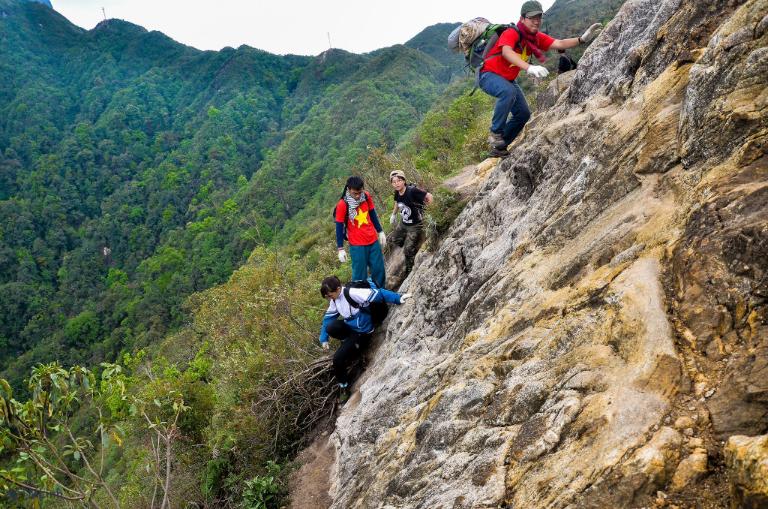
Combination Tours: Best of Both Worlds
Combining a trip would be the best option if you want to experience the cable car and trekking aspects however are pressed for time. Usually, most trips will take you up by cable car; then, you can walk a little distance to see the surrounds before returning by cable car, or vice versa. This choice lets you savor the best of both worlds: the thrills of treking under the convenience of the cable car.
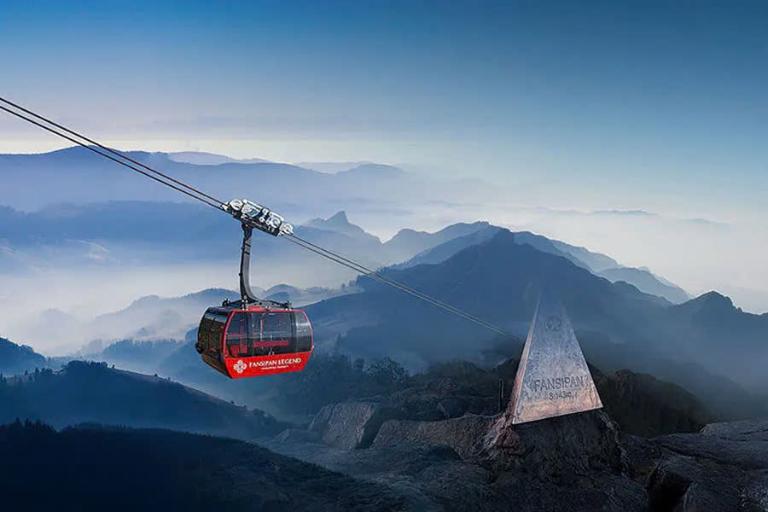
Suggested Sapa Fansipan – Cat Cat Village Tour 2 Days 1 Night from Hanoi
Day 1: Hanoi – Noi Bai – Sapa – Cat Cat Village
06:30 AM: For the check-in process, meet at the agreed upon place on Tran Quang Khai Street, as scheduled before the departure date. Starting the trip to Sapa on the Hanoi – Lao Cai Expressway Usually, our buses go from the University of Foreign Languages, Hoa Binh Park, Thang Long Industrial Zone, Noi Bai, then into the highway. If prearranged, you can be picked up from any one of these sites.
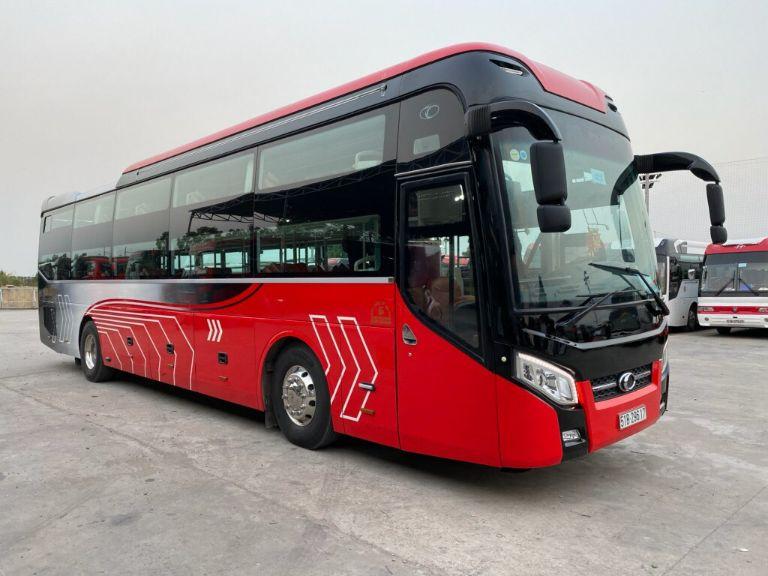
Note: Should you arrive early at Noi Bai Airport and check out before 7:45 AM, we will help with airport pick-up for a 50,000 VND per person cost. Pick-up for individuals arriving from the previous evening with a hotel stay in the Noi Bai area will be scheduled at the Kim Anh Intersection (3 km from Noi Bai) between 7:45 and 8:00 AM.
1:00 – 1:30 PM: Arriving in Sapa 1:00 to 1:30 PM. Having lunch at your hotel, then settle in and relax.
Afternoon: Stroll slowly with the guide to see Cat Cat Village, where you may learn about the daily life of the H’mong ethnic people. See the lovely Tien Sa Waterfall and take in a classic cultural performance at the historic hydroelectric plant.
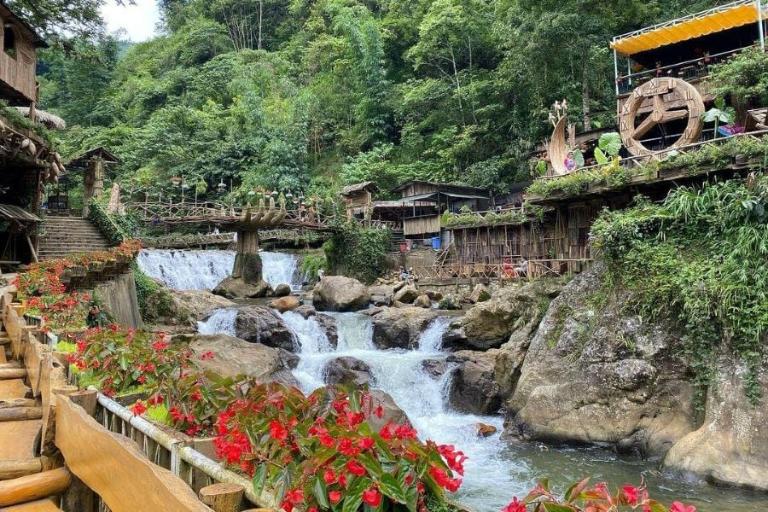
6:00 PM: Dinner at a local restaurant. It’s nighttime free for discovery. Photographs near the famed Sapa Stone Church, Saturday night visits to the monthly Love Market, or just enjoy local grilled cuisine with a drink of renowned San Lung wine to relax in Sapa’s cool evenings. Sapa overnight stay.
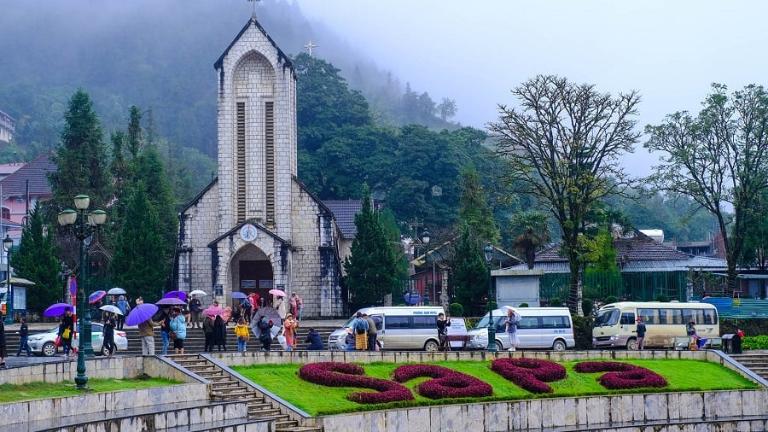
Day 2: Sapa – Fansipan – Noi Bai Airport – Hanoi
7:00 AM: Savour a great breakfast in the hotel and unwind in the restaurant over a nice cup of coffee.
8:00 AM: Get on the car with your guide and travel to the Fansipan Cable Car Station to start the journey of summit conquest. With capacity for up to thirty people, this cable car is the most sophisticated 3-wire system available worldwide. Climb 600 stone steps to reach the top of Fansipan at 3,143 meters, the rooftop of Indochina.
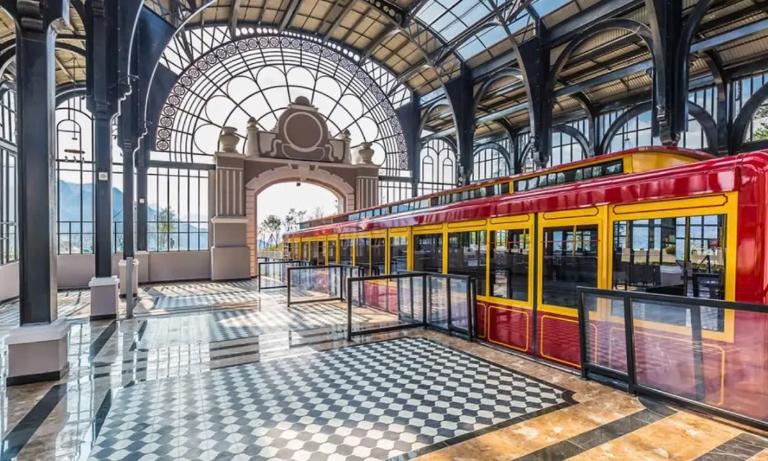
Pass via the Thanh Van Dak Lo Gate from the top station to explore a realm above the skies. Perched more than 2,000 meters, the Bich Van Zen Temple welcomes guests with its traditional Vietnamese architecture among the mist. In the mysterious environment, stroll across the ringing sounds of the temple bells; at 3,000 meters, the magnificent 21.5-meter-tall bronze statue of the Amitabha Buddha awaits you.
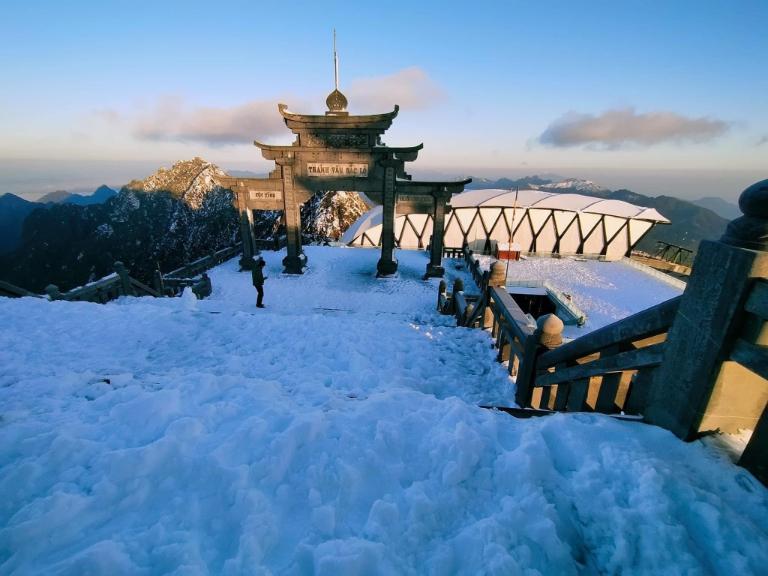
Proceed the Arhat Path, where eighteen magnificent Arhat sculptures lie peacefully among the skies. Arriving to the historic Kim Son Bao Thang Temple, which features 15th and 16th century wooden temples, you will Here you can honor the Avalokitesvara monument and tour the Mountain God Shrine. The centuries-old rhododendrons thrive among this calm environment, waiting for the vivid spring colors.
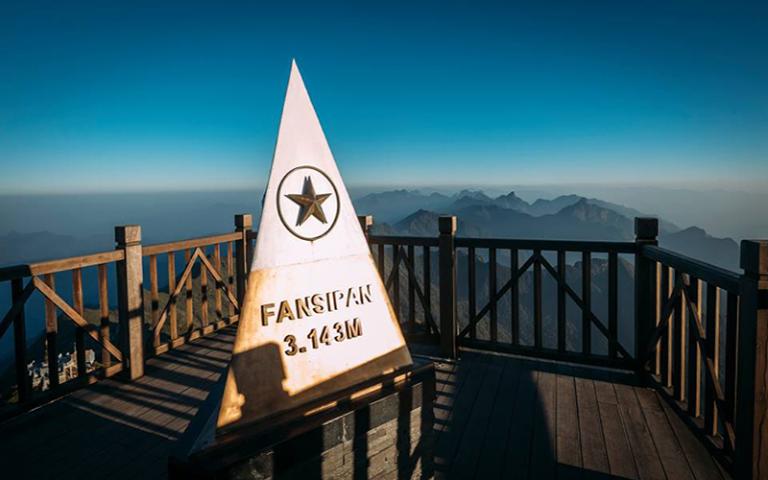
Reaching the top of Fansipan, 3,143 meters, you will have ascended the last 600 stone stairs. Look about and savor the amazing scene. Every guest will be in a different state of awe and astonishment while carrying distinct wishes and ideas.
11:30 AM: Return to Sapa town at 11:30 AM; check out of your accommodation and have lunch.
1:15 PM: Your guide will drive you to the car ready for the return trip to Hanoi 1:15 PM.
7:00 PM: Get at Noi Bai Airport. Should pre-arranged, the car will drop you off at the airport lobby.
8:00 PM: Get in Hanoi. The trip ends; we say goodbye. See you once more shortly!
What to Expect on a Sapa Fansipan Tour
Spectacular Views and Scenic Landscapes
One thing is certain: the vistas are absolutely amazing whether you’re using the cable car or trekking. Some of the most beautiful scenes in Southeast Asia are provided by the terraced rice fields, misty mountains, and rich green valleys. Since the landscape changes significantly depending on the height, be sure your camera is ready; this will be ideal for lovers of photography.
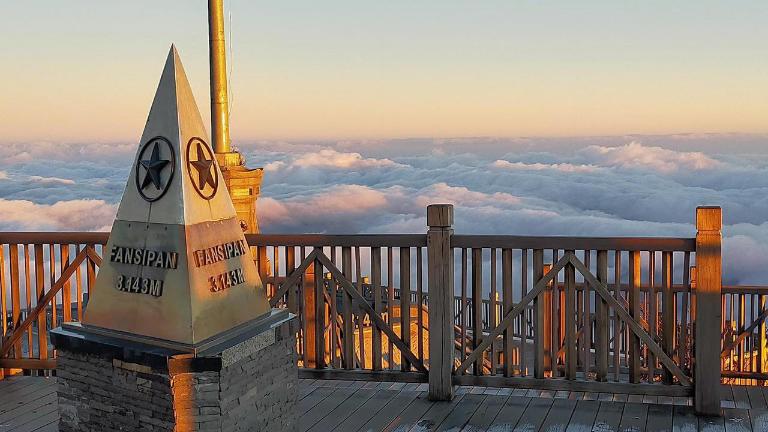
Cultural Insights: Sapa’s Unique Heritage
Though the mountain is the major draw, the cultural encounters accompanying the Fansipan trip are just as rewarding. Living in tune with the terrain, Sapa’s ethnic minority groups follow age-old customs handed down through the years. You will probably pass through these towns on your tour and have the chance to meet residents, learn about their way of life, and maybe even take part in their customary events.
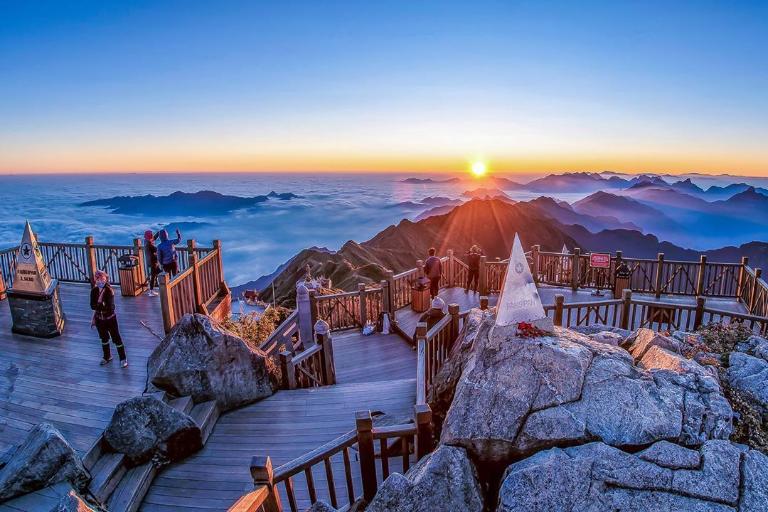
Physical Demands of Sapa Fansipan Tour
Trekking to Fansipan’s top is not for the weak of heart. The physical challenges are great, hence one needs endurance, good preparation, and a feeling of adventure. Trekkers may find the path difficult given steep hills, slick surfaces, and erratic weather. One should be physically well and psychologically ready for the travel.
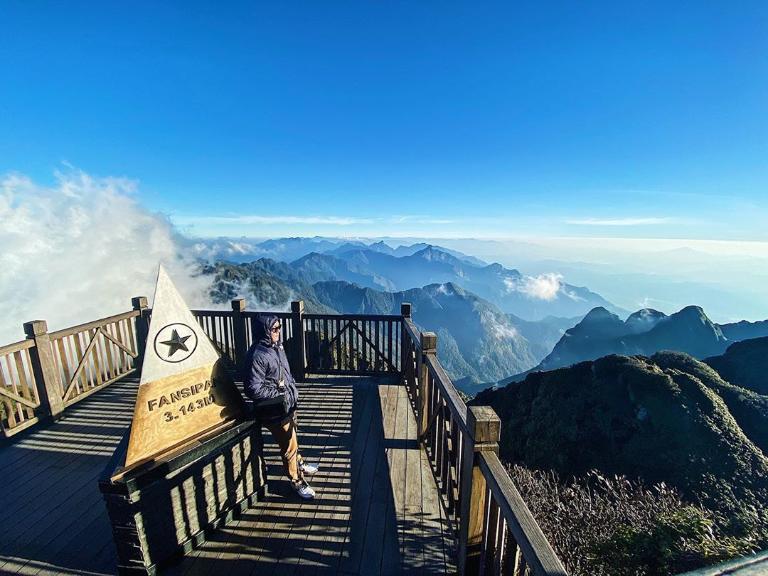
Packing for a Fansipan trip calls both much thought. Apart from fundamental hiking gear, make sure you carry warm clothing, a decent pair of trekking boots and a waterproof jacket. Bringing thermal gear, gloves, and a cap is smart if you’re trekking in the colder months. Remember food and enough of water to keep you going during the climb.
Safety Tips and Preparation
Health and Safety Considerations
Like any high-altitude expedition, there are health and safety issues to weigh. Some people may get mild altitude sickness from Fansipan’s height, hence it’s important to keep hydrated and take rests when necessary. Though local guides are always on hand to guarantee trekkers’ safety, if you have any pre-existing medical concerns it is advisable to see a doctor.
Hiring Local Guides for an Authentic Experience
Although you could go on your own trekking, hiring a local guide will significantly improve the trip. Along with knowing the topography, these guides can offer insightful analysis of Sapa’s history and culture. Your trip could seem more real and engaging if you had a local guide.
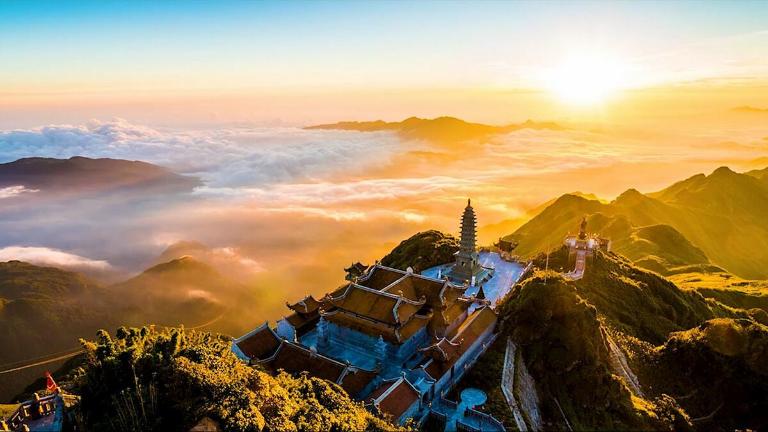
Sapa Fansipan tour combine adventure, nature, and culture in just the ideal balance. Sapa provides something for everyone whether your preferred cable car trip is more laid back or you want to challenge yourself with a climb to the top. A Fansipan trip will surely leave you with lifelong memories from its captivating scenery, rich history, and breathtaking views.
Related Posts:
- Sapa Motorbike Tours: The Ultimate Adventure in Vietnam’s Majestic Mountains
- Sapa Tour 2 Days 1 Night: Your Perfect Highland Escape
- Sapa Tour 3 Days 2 Nights: The Perfect Escape to Vietnam’s Highlands
- SaPa Trekking Tour: Best Routes, Tips & Cultural Insights for 2025
- Half Day Sapa Motorbike Tour: Experience the Beauty of Sapa on Two Wheels






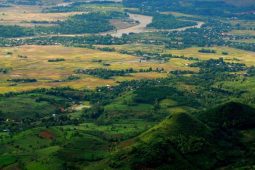

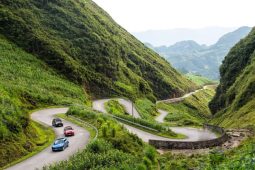

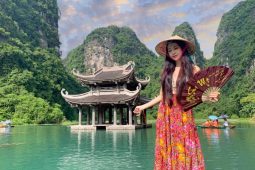
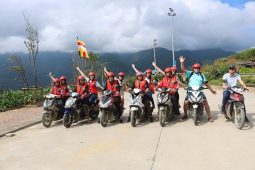
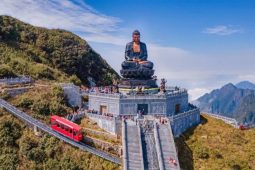
Be the first to comment!